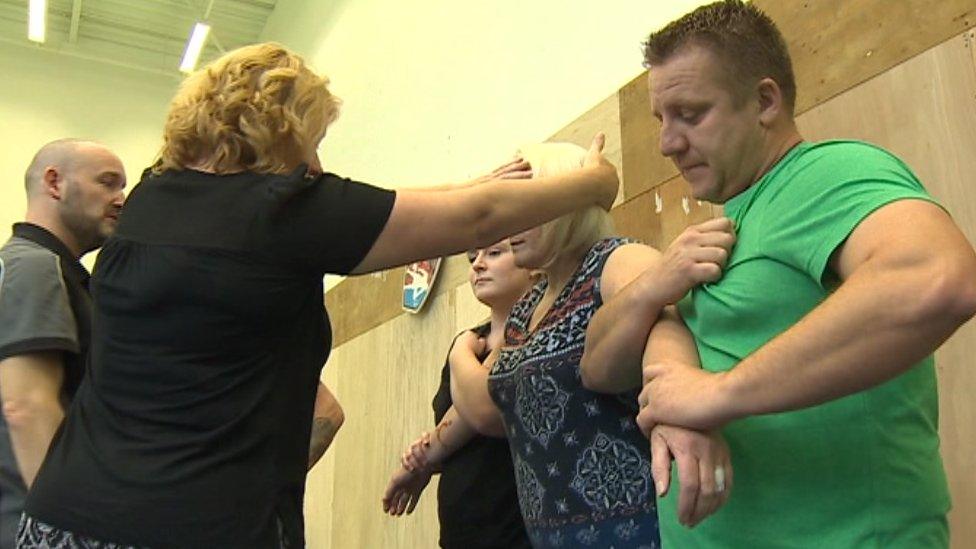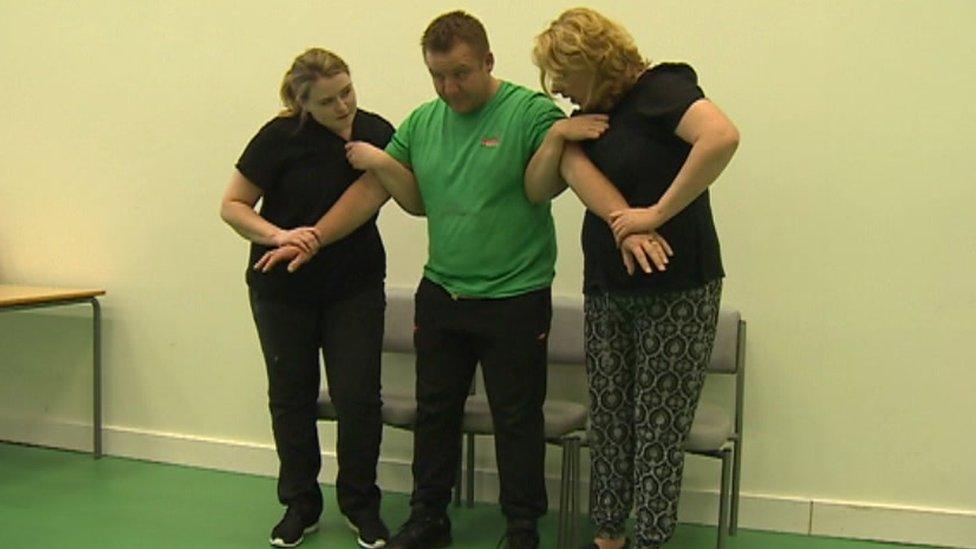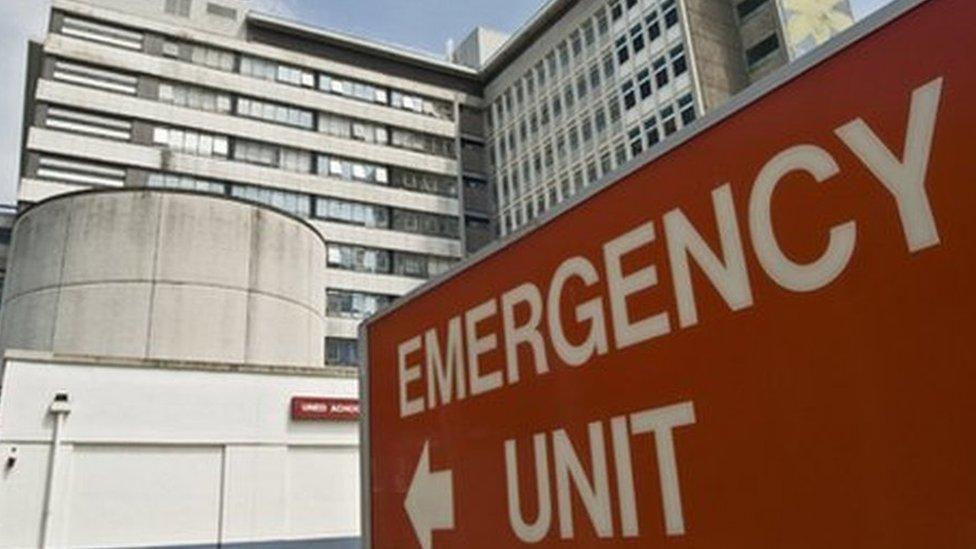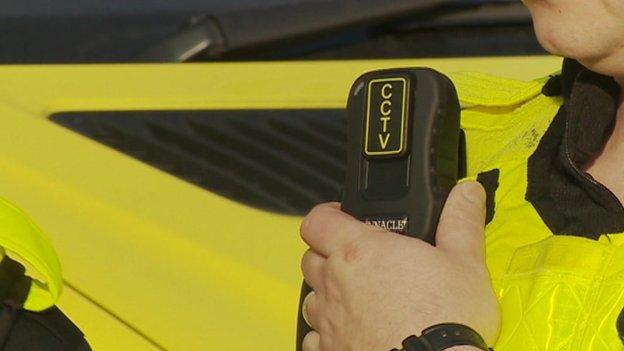Mental health hospital attacks on north Wales staff fall
- Published
Daily "violent attack threat" faced by mental health staff
The number of attacks by mental health patients on hospital staff in north Wales has fallen 12% in three years.
There were 331 violent incidents involving patients and workers across the region in 2016-17, compared with 378 in 2014-15.
The fall comes as the number of attacks across the UK rose by 25% in four years.
Betsi Cadwaladr University Health Board said staff had been trained to prevent and deal with aggressive behaviour.
The board now employs four Violence and Aggression Specialist Nurses to train colleagues how to spot signs of aggression, calm aggressive situations and safely restrain any patients who do become violent, if needed.
Their work also includes putting support plans in place for at-risk patients, so staff know how best to deal with them if an incident happens.
They also work with patients and their families after a violent incident and coordinate support for staff who are attacked.

Staff are trained how to safely restrain patients when they become aggressive
Llinos Prydderch, ward manager at the Heddfan psychiatric unit in Wrexham, said the training helped staff pre-empt violent incidents so they could prevent them.
She said: "It gives staff confidence to know, should situations arise, they can safely manage that situation - they can contain it.
"But equally, because you're safe in the knowledge that you can do that, the tendency then is to try and go in and de-escalate the situation, knowing that if de-escalation doesn't work, you can contain it with the methods that we're taught.
"And I think we de-escalate situations on a day-to-day basis here, which is clearly more beneficial for the patients and for staff members."
Gareth Owen, the health board's clinical nurse specialist for violence and aggression, said while prevention was key, it would never be possible to totally eliminate the problem.
"Sadly, people who suffer from mental health problems are more likely to have experiences which can contribute towards behaviours which are deemed unacceptable," he said.
He added while some violence and aggression was directly driven by a clinical condition, some were not, and in those circumstances, the health board would support staff to take legal action.
The board's specialist nurses are now helping to train colleagues across Wales and are working with clinicians to establish national guidelines on the issue.

More than two thirds of violent incidents towards Betsi Cadwaladr board staff in the past three years involved mental health patients
- Published8 October 2017

- Published27 December 2016

- Published16 February 2015
